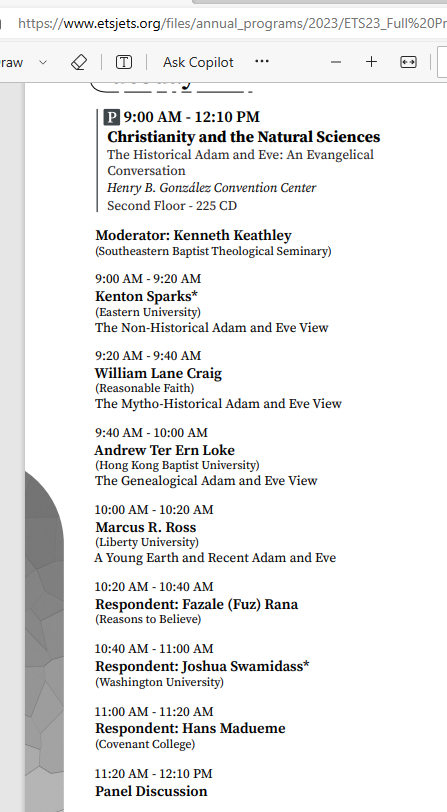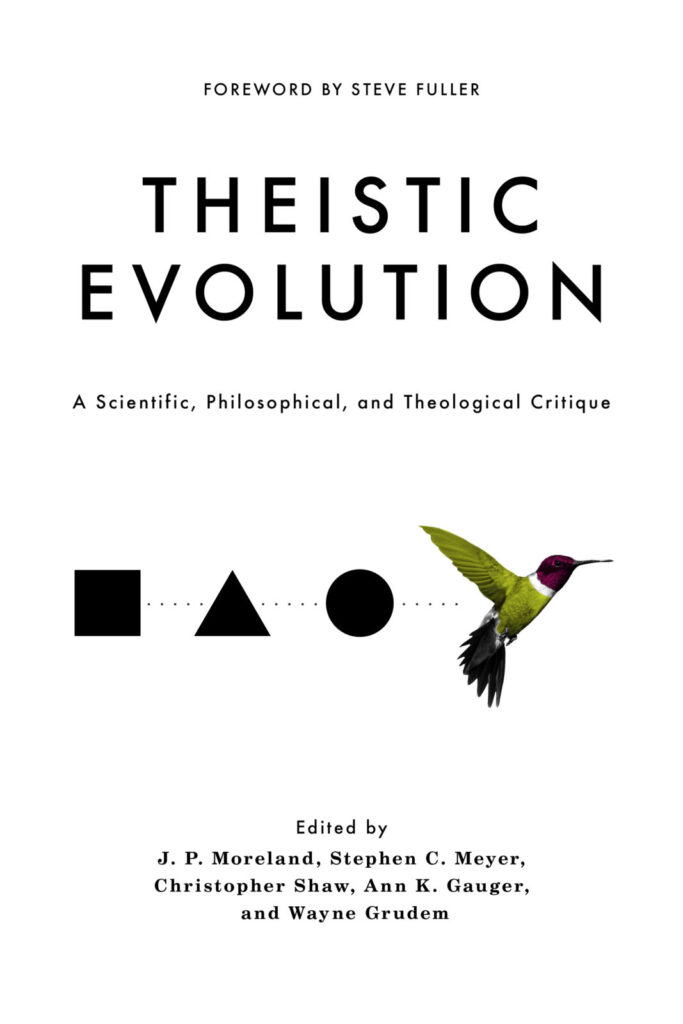
Did God create Adam, the first human man, in a direct and special way? Or did God indirectly create Adam and Eve by appointing two members from a band of line of highly-evolved, upright-walking hominids (such as Homo heidelbergensis around 750,000 years ago) to be the first true archaic human breeding pair? Does Genesis 1-11 belong to the genre of “Mytho-History” as Assyriologist Thorkild Jacobsen and Christian apologist William Lane Craig suggest? Like the Epic of Gilgamesh and other Ancient Near Eastern myths of Babylon and Egypt, should it be interpreted less-than-literally? Dr. Bill Roach, co-author of Defending Inerrancy: Affirming the Accuracy of Scripture for a New Generation (Baker Books, 2012), discusses all this and more in these videos recommended by the DefendingInerrancy.com team:
Over the last 2,000-3,500 years, the traditional, conservative view of the creation of Adam is that God created Adam directly from the dust of the earth. This seems to follow Moses, Jesus, and Paul. In Genesis 2:7, Moses certainly makes it sound that way. Jesus seems to interpret Moses’s account of God’s creation of Adam and Eve in Genesis 1-2 as a literal account of a direct creation (Mt. 19:4; Mk. 10:6). The Apostle Paul seems to interpret Gen. 2:7 literally and directly, writing, “The first man was from the earth, a man of dust . . . the man of dust . . .” (1 Cor. 15:47-49).
The International Council on Biblical Inerrancy conserved this tradition in various articles of affirmation and denial in The Chicago Statement on Biblical Hermeneutics (1982):
Article XIX
We affirm that any preunderstandings which the interpreter brings
to Scripture should be in harmony with scriptural teaching and
subject to correction by it.
We deny that Scripture should be required to fit alien preunderstandings, inconsistent with itself, such as naturalism, evolutionism, scientism, secular humanism, and relativism.
Article XXII
We affirm that Genesis 1-11 is factual, as is the rest of the book.
We deny that the teachings of Genesis 1-11 are mythical and that scientific hypotheses about earth history or the origin of humanity may be invoked to overthrow what Scripture teaches about creation.
In the official ICBI commentary on the Chicago Statement on Biblical Hermeneutics, Norman Geisler explained the ICBI’s view on these two articles: [1]
Since the historicity and the scientific accuracy of the early chapters of the Bible have come under severe attack it is important to apply the “literal” hermeneutic espoused (Article XV) to this question. The result was a recognition of the factual nature of the account of the creation of the universe, all living things, the special creation of man, the Fall, and the Flood. These accounts are all factual, that is, they are about space-time events which actually happened as reported in the book of Genesis (see Article XIV). The article left open the question of the age of the earth on which there is no unanimity among evangelicals and which was beyond the purview of this conference. There was, however, complete agreement on denying that Genesis is mythological or unhistorical. Likewise, the use of the term “creation” was meant to exclude the belief in macroevolution, whether of the atheistic or theistic varieties.
The Denial is directed at an illegitimate use of genre criticism by
some who deny the truth of passages which are presented as factual. Some, for instance, take Adam to be a myth, whereas in Scripture he is presented as a real person. Others take Jonah to be an allegory when he is presented as a historical person and so referred to by Christ (Mat. 12:40-42). This Denial is an appropriate and timely warning not to use genre criticism as a cloak for rejecting the truth of Scripture.
At the 2023 meeting of the Evangelical Theological Society, two views favorable to biblical errancy (the view that the Bible contains errors of fact or logic) were presented. Kenton Sparks offered a Non-Historical Adam and Eve view and William Lane Craig presented the Mytho-Historical Adam and Eve view. [2]

The DefendingInerrancy.com team agrees with the ICBI and the Chicago Statement on Biblical Inerrancy. We also recommend Thomas Howe’s book A Critique of William Lane Craig’s In Quest of the Historical Adam (W&S 2022).
Printed book:
Kindle e-book:
Additional resources:
Fazale “Fuz” Rana, Christian Research Institute, Apr 17, 2023















